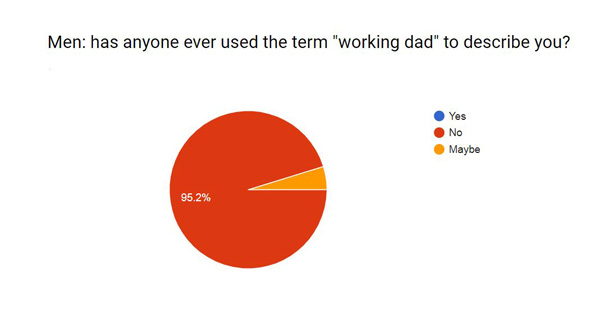Women In Optometry’s recent Pop-up Poll looked at the terms “working mom” and “working dad.” While the terms “working mom” is commonly used, the term “working dad” is not. Eighty-five percent of respondents said that they’ve used the term “working mom” while only 7 percent said that they’ve ever used the term “working dad.” The gender-neutral “working parent” has been used by 38 percent of respondents.




Eighty-three percent of female respondents identified themselves as a “working mom,” and 72 percent said that others have referred to them that way.




In contrast, 59 percent of men identified themselves as a “working dad,” but none said that others have referred to them that way.
Several respondents wrote in responses.
“’Working Dad’ should be more accepted and used if ‘Working Mom’ is.”
“Has anyone ever asked a working dad if they had dad guilt?”
“Wow. This slapped me in the face. In the exam room, I’m careful to ask women ‘Do you work OUTSIDE THE HOME?,’ not if they are a working mom. (My bias is that if they are a SAHM, then they work a lot harder 9-5 than *I* do!). But I’ve never thought about the term ‘working dad.’ This was a great wake up!”
“My husband and father to our four children is a stay at home Dad. He definitely works, just doesn’t get a regular paycheck!”
“No phrase would encompass everything a person does when they have both parental and professional responsibilities. I think you can focus on the negative connotations or try to enhance the positive associations with the term.”
“Parents work at their paid jobs and their at home unpaid job of parenting. Thus any parent is a working parent whether they get paid or not.”
“I notice that things that stray from what folks are most used to (most common historically) are given additional descriptive to delineate that a difference from norm exists in the situation at hand: ‘working mom’ as opposed to ‘stay at home mom.’ Times change and so will the terms we use as folks realize the implied stereotype is no longer appropriate for the norms of modern society. Being cognizant and accepting of changing times and the appropriateness of the words we use will allow for antiquated term to go away quicker.”



